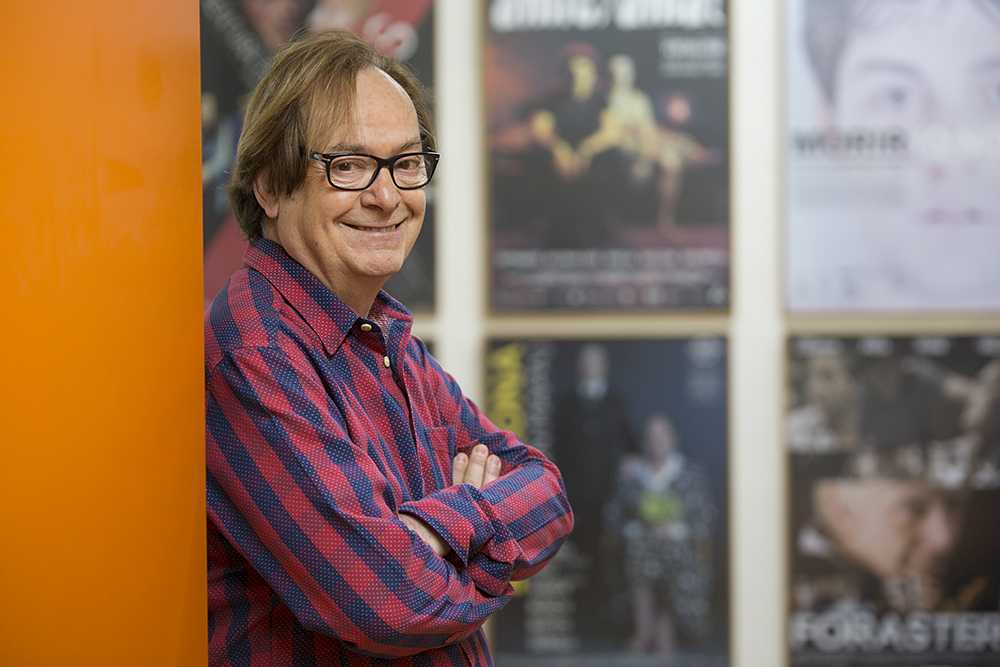The Catalan filmmaker Ventura Pons (Barcelona, 1945) has died at the age of 78. Ventura Pons was one of the most prestigious and prolific of Catalan film directors in the post-Franco era and a reference point in the industry in Catalonia. Pons began his career directing theatre, with more than 20 productions, before shooting his first film, Ocaña, retrat intermitent ("Ocaña, an Intermittent Portrait"), which was chosen for the Official selection of the Cannes Festival in its 1978 edition. In total, he directed 32 feature films over four decades.
The news of his death was given on social media by the Academy of Catalan Cinema. In its message, the organization highlights the "prolific" nature of the filmmaker and his commitment to Catalan cinema "and in the Catalan language".
Aquesta tarda ens ha deixat a Barcelona el director, productor i guionista Ventura Pons, Premi Gaudí d'Honor - Miquel Porter 2015, un dels més importants cineastes del nostres país i que més ha fet pel cinema català i en català. pic.twitter.com/cMhq2BGvAz
— Acadèmia del Cinema Català – Premis Gaudí (@academiacinecat) January 8, 2024
Translation: "This afternoon the director, producer and screenwriter Ventura Pons left us in Barcelona. Winner of the Gaudí Award of Honour - Miquel Porter 2015, one of the most important filmmakers in our country and one of those who has done most for Catalan cinema and in Catalan."— Acadèmia del Cinema Català
The death of Ventura Pons is a notable loss of one of the most prominent figures in Catalan cinema. Minutes after the news of his death was announced, social media began to fill with messages of condolences, especially from those who has worked with him, as is the case of producer Isona Passola, also emphasising how his work put Catalan cinema "on track".
Avui ens deixa Ventura Pons, cineasta prolífic i compromès en el redreçament d’una cinematografia catalana i en català. Exhibidor dels Cinemes Texas de Barcelona, els ara reoberts @EspaiTexasBcn . Gaudid’honor de l’@academiacinecat .Adéu Ventura, gràcies! D.E.P
— Isona Passola (@isonapassola) January 8, 2024
Translation: "Today Ventura Pons leaves us, a prolific filmmaker committed to getting Catalan cinematography on track, and doing so in Catalan. Movie house entrepreneur of the Texas Cinemas in Barcelona, now reopened @EspaiTexasBcn. Gaudí Award of Honour from the @academiacinecat. Farewell Ventura, thank you! RIP"— Isona Passola
Throughout his adolescence he made frequent trips to London, a city where he researched British documentary making. From these trips he extracted his first reference points, who were John Osborne and John Fletcher, among others.
His cinematographic production was developed under the framework of his own company, the legendary Els Films de la Rambla, which he created in 1985. His filmography consists of 32 feature movies, participation in more than 810 festivals, 34 retrospectives and other film events, and also in the academic sphere, all over the world. In 2012, the Denver Colorado University hosted a University Congress on his cinema with specialists from international academia. As a result of the congress, the work Ventura Pons: Una mirada exceptional desde el cine catalán ("Ventura Pons: An Exceptional Gaze from the Catalan Cinema"), later published by Vervuert/Iberoamericana Publishing.
The work of Ventura Pons found a niche in the international scene with many of his titles being exhibited at major film festivals from Toronto to Berlin (in which he had a consecutive presence for five editions). His first film, Ocaña, became a cult title, and soon after he directed his second feature film, El vicari d'Olot ("The Vicary of Olot"), in 1981.
Four years later he opened Els Films de la Rambla, from which he constructed the rest of his filmography, with such as La rossa del bar ("The Blonde at the Bar"), Puta misèria! ("Damned misery!"), Aquesta nit o mai (Tonight or Never), Rosita, please! and El Perquè de tot plegat ("The Reason for It All"), this last title an adaptation of stories by Catalan writer Quim Monzó.
Political commitment
Beyond cinema, Ventura Pons committed himself to the Catalan independence movement, and especially in the intense years around the 1st October referendum. He also entered the film exhibition business in order to recover the old Cínema Texas in Gràcia as a neighbourhood moviehouse. Personalities from the world of culture, politics and social organizations expressed their sadness at his loss this Monday. Throughout his life he has received awards and distinctions, including the honourary Gaudí Award from the Catalan film academy in 2015; Catalonia's highest honour, the Sant Jordi Cross in 2007 and the Gold Medal for Merit in the Fine Arts. As a filmmaker he held positions in various institutions, including vice-president of the Spanish Cinema Academy and a councillor for the Spanish Society of Authors and Publishers (SGAE).

